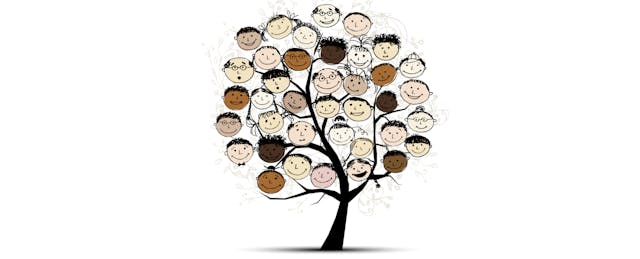When creating the transformative, deep learning experiences we all want for our students, relationships matter. Intuitively, we know this to be true, but what does it look like in schools?
As more students are living with trauma and serious mental health issues, and educators face a landscape of shifting priorities along with mounting pressures to demonstrate positive student outcomes, it’s more important than ever to understand the proven, tangible steps schools can take to help.
“Most people talk about academic rigor,” says Dr. Bill Daggett, founder of the International Center for Leadership in Education (ICLE) and former teacher, administrator and director with the New York State Education Department. “But we believe that successful schools begin with relationships to determine what is relevant to a child. Then building your instructional practices around that relevance is what makes rigor possible. You can’t talk about relationships or SEL (social-emotional learning) and mental health in isolation any more than you should be thinking about academics in isolation.”
EdSurge spoke with Daggett about how school and district leaders can address students’ social, emotional and mental health needs to support learning in these critical times.
EdSurge: You’ve spoken extensively about the alarming and persistent mental health issues in our country that prevent students from fully engaging in learning. What does this crisis look like?
Daggett: The issue we need to focus on is not “What's wrong with these kids?” but “What happened to these kids?” The world they're growing up in fundamentally and irreversibly changed from the world that their parents grew up in, and their grandparents. But the structures we have to support them haven't changed.
The past two to three decades include huge technological shifts and a significant decline in face-to-face interactions and experiences, which is where we learn critical social-emotional skills. A huge rise in suicides, depression, anxiety, self-harm and other mental health issues correlates with this time.
Another thing that happened—beginning first with No Child Left Behind, then really accelerated by the standards and the testing movement in schools—was that we began to say the purpose of third grade is to get kids ready for fourth. The purpose of elementary is getting ready for middle. Middle school is getting ready for high school. High school, college.
We drove academics all the way down to kindergarten and preschool, but we didn't expand the amount of time kids had in school. We took away all those social skill developments that preschool and kindergarten used to be primarily focused on. What you end up with is this dynamic where kids aren't developing a foundation for good mental health. This is why I say we should not focus on what's wrong with these kids, but what happened to these kids.
What’s the best way for schools to be nimble and responsive to the context their students are living in?
Culture trumps strategy. What is our vision of what it means to educate young people today? Is it simply academics? I'm not opposed to testing, but what we're learning is that we lost sight of the whole child. We became so fixated on just the academics, which is important, but it's not adequate. Is your culture to simply improve test scores and student academic performance, or is it whole-child development? It's a deeply fundamental question. From boardroom to classroom, you have to really think that one through carefully.
We have a partnership with AASA to identify the nation's most rapidly improving schools, and we’ve found that those schools almost always have the whole-child mentality. What's interesting is, we picked those schools because they had the most rapidly improving test scores—that's what the media and everybody pays attention to. But when we get inside, we find they spend less time focusing on tests than other schools. If you really address mental health issues, academics become easier to address. The more the mental health issues bubble up in the district and you don't address them, no matter how hard you work, you're not going to improve academic performance.
I am also worried about the mental health of teachers. In a classroom of 20 to 25 kids, you're going to have—on average, nationwide—three kids with serious mental health issues who become disruptive. We have to provide teachers with a network of peers who are dealing with the same issues, and we should be driving more resources into the classroom. The role of the teacher then changes from simply disseminator of knowledge to manager of the learning process. That’s what’s paying off in the nation's most rapidly-improving schools.
How do relationships impact social-emotional learning, mental health and academic achievement?
ICLE has a byline: “Rigor, relevance, and relationship, all students.” Relationships are the key to making it all work. What motivates one child will not motivate the next; they're all different. You've got to know that kid to know what will motivate them. You also have to know the dynamics of their personal lives.
In the nation's most rapidly improving schools, they do things like loop teachers, meaning the teacher stays with a class more than one year, or the teacher switches from the class mid-year, not at the beginning or end. There is that touchpoint with that teacher over the summer. With just simple things—a few emails, a little facetime—it helps address the summer loss issue. You hit the first day of school knowing the kids and their parents, and they know you. You can get on with academics because you have that personal relationship. Looping becomes really common as a strategy to build on relationships.
As a principal or a superintendent, make it part of the teacher’s evaluation: Along with how well the kids are doing academically, how strong a relationship do you have? Make it part of your reporting system; do student surveys, surveys with parents and teachers. Ask questions about rigor, relevance, but also ask about relationships. That helps create the expectation that relationships are really important.
District leaders: As you prepare to reopen school doors, read ICLE’s strategic plan to help you meet the challenges of the coming year.
What steps can administrators take to ensure that SEL and equity programs are in place and reaching all students?
One thing: ESSA, Every Student Succeeds Act, the new federal legislation. They are requiring schools to disaggregate student performance data, attendance data and referral and discipline data. You have to show for each subgroup—whether it’s minority children, kids in poverty, free and reduced lunch, special ed, gender subgroups—their performance, attendance, discipline, referrals and so on, in comparison to the total student population. Then, you have to articulate a plan about how you're going to close that gap over the next three to five years.
The other thing you do is change your data system from proficiency-based to growth-based. The growth model is a better way to go. Simply see where each kid is, and put a challenging but realistic growth plan in front of them.
Measure each child, and celebrate that child’s growth. That is more important than trying to get every kid to the exact same point. That really helps every child become all they're capable of being.



